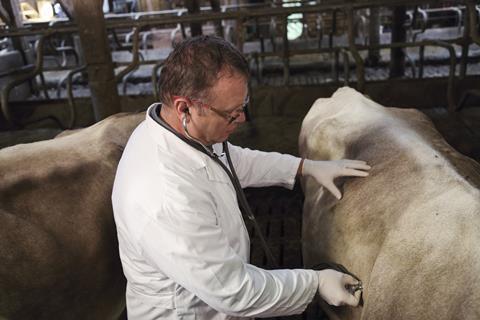
An independent body made up of trade experts and former government officials has warned the Labour party of the risks of signing a veterinary deal with the EU to reduce Brexit border checks.
A new report by the Trade Facilitation Commission has urged the government to not agree a deal with the EU that would eliminate the need for costly health certificates “unless it is a NZ style mutual recognition agreement”.
The UK requires all EU imports of medium and high risk, such as meat and dairy, to go through SPS (sanitary and phytosanitary) controls, which include vet-signed certificates that can cost up to £150.
This is a key requirement of the government’s post-Brexit strategy, also known as the Border Target Operating Model (BTOM).
However, traders across both sides of the Channel have complained of the mounting costs of such red tape – prompting prime minister Keir Starmer to propose striking a vet deal with the EU that would see Britain and the bloc recognise each other’s food safety standards and ditch the need for health certificates.
This is part of the new Labour government’s perceived intention to move towards a “dynamic alignment” approach – when parties agree to maintain equivalent regulatory standards to each other in future – to EU trade.
Now, the Trade Facilitation Commission has warned the government of the dangers of striking a loose vet deal simply to reduce checks on EU goods at its borders and prevent delays and increasing costs for businesses.
It called on ministers to aim for a strong New Zealand-style agreement where both sides are seen as “low-security” risk and can in turn access fast-tracked customs processes and be less likely to understake safety checks.
The TFC also urged government to consider the dangers of dynamic alignment with the EU.
“The impact of SPS dynamic alignment is that there are areas now where the UK’s SPS rules go above and beyond EU rules” the report argued. “For example, the UK maintains a live animal export ban which the EU does not. The UK bans sow stalls which the EU does not.
“Indeed, much of our bacon comes from Denmark where sow stalls are used. So not only would we be precluded from improving our SPS regime in pro-competitive ways and bringing it more in line with sound science as the WTO requires, but many animal welfare concerns of the UK would be unable to be addressed.
“However, similar benefits to physical checks in GB can also be achieved through unilateral recognition of underlying EU product market regulation, without the need for the UK to forfeit the right to decide its own regulatory future,” wrote the TFC, an independent group of leading customs, border and trade policy experts covering the movement of goods and people.
Read more: One third of UK businesses want Labour to slash Brexit red tape
The TFC has been convened under the chairmanship of former Treasury minister, Lord Agnew, to advise the government on the policy options to increase UK exports and lessen trade disruptions at the border in the post-Brexit world.
The group argued that dynamic alignment with the EU “initially sounds promising but would not affect the need for customs processes and paperwork”, as well as other regulatory checks on the bloc’s side.
“It is likely that the intensity of physical checks from GB to the EU would reduce and this would bring some benefits. The UK could lessen both regulatory controls and physical checks, and could lower some of the customs burdens for EU goods traded into GB.
“But dynamic alignment violates the constraining principle which informs this report which is to do no harm to the UK’s domestic regulatory reform and independent trade policy where the economic growth gains actually lie.”
Trade experts also urged the government against seeking to be part of the EU’s safety and security zone.
New requirements for safety and security declarations on European goods were meant to roll out last month, representing the final milestone of the Brexit trade strategy – but the deadline has now been extended until January 2025 amid concerns the IT systems were not ready.
At the same time, the rollout of the government’s Single Trade Window – a digital platform working as a single destination where importers and exporters could submit all their trade paperwork to optimise border controls – has too been postponed for another year.
Nevertheless, the TFC strongly recommends that the UK moves towards implementing smart borders and digital trade corridors, which would allow for automated monitoring, real-time container tracking, and pre-arrival data exchanges, thus minimising border delays and enhancing security.
TFC commissioner Lars Karlsson said: “We need to rethink trusted trader schemes in the UK, expanding them to ensure secure, streamlined processes across all government agencies.
“This will empower compliant traders and allow for faster, smoother border transactions, promoting both economic growth and security.”







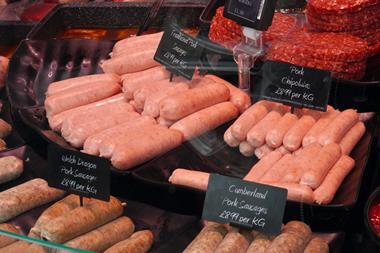

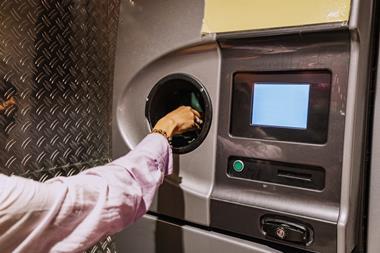







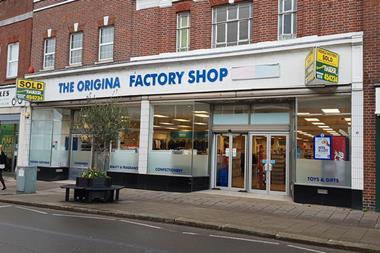
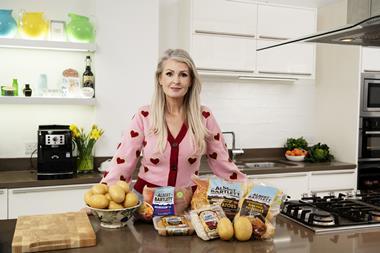
1 Readers' comment